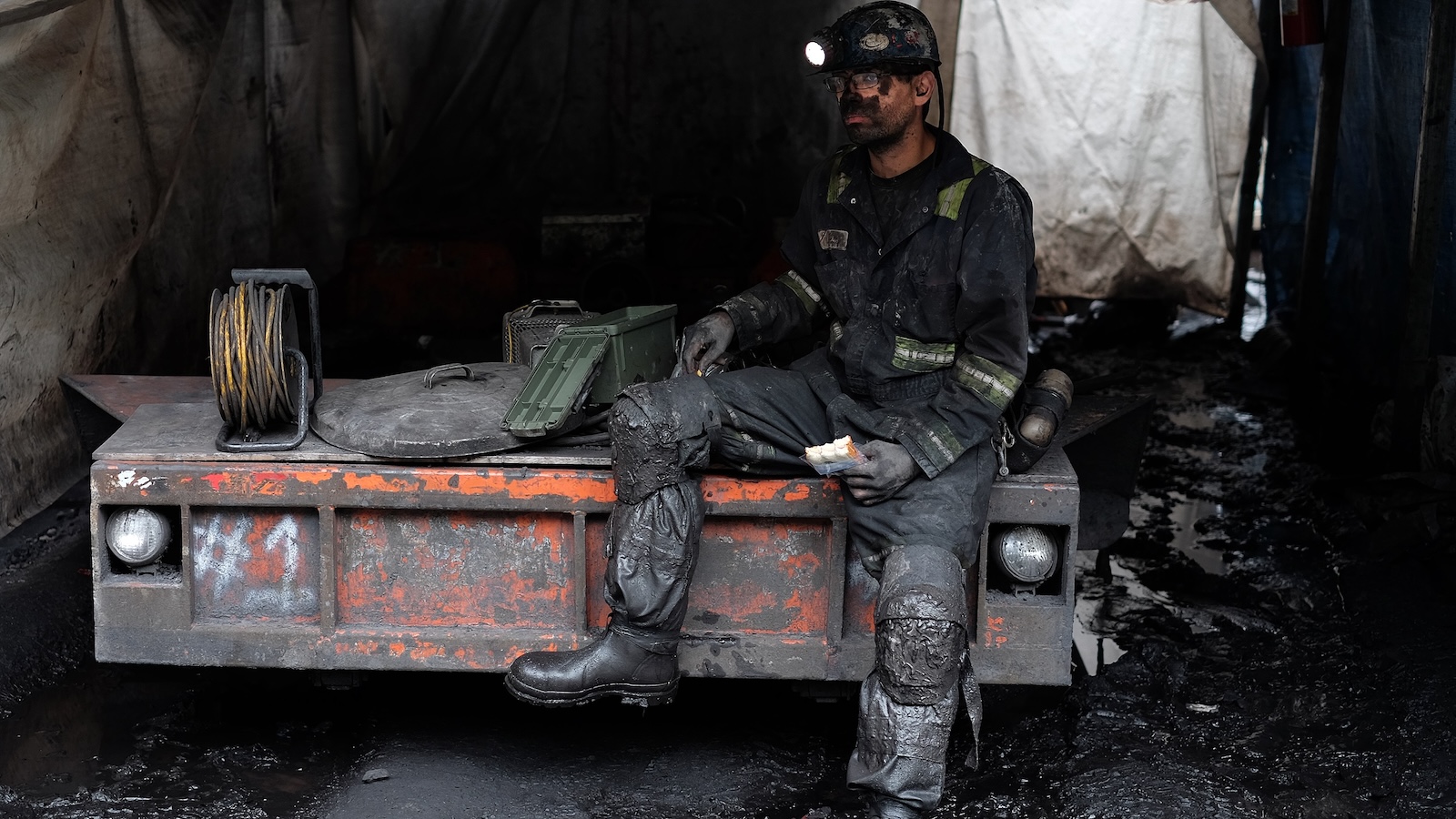Trump Deportations Have Dairy Farmers on Edge

Visit a dairy farm anywhere in the country and odds are decent you’ll overhear conversations in Spanish.
Like other farmers in the United States, dairy farmers rely on immigrant laborers from Mexico or Central America, many of them without authorization to work here. Immigrant labor is vital in getting milk to market, whether it’s moving cows through milking machines, taking care of chores that milking robots still can’t do or trucking milk across the country.
That’s especially the case on larger dairies with hundreds or thousands of cows. According to Farm Action, only 2.5% of dairies (comprising a few hundred dairies with more than 2,500 cows) produce nearly 45% of American raw milk.
“We’re at a point today where, if you go on large dairy farms—and when I say large, I mean anything that’s, let’s say 500 cows and higher—[there’s a] very strong likelihood that most of the milkers are Hispanic, and probably some of the shop or outside crew,” says Richard Stup, director of agricultural workforce development at Cornell University. In the Northeast and Midwest, he estimates immigrants make up about 50-60% of dairy workers, while in the Southwest and West it is close to 80%.
Rick Naerebout, CEO of the Idaho Dairymen’s Association, estimates that about 90% of workers on Idaho dairy farms come from other countries.
That has left many farmers deeply uneasy at the aggressive stance on immigration taken by the Trump administration, which has made immigration enforcement central to its message and policy.
There are signs Trump may be ramping up raids on dairy workers. In late March, ICE reportedly picked up four adults and three children at a dairy farm in Sackets Harbor, New York. The agency said at the time that it had also begun conducting “enhanced targeted operations in parts of New York,” picking up any unauthorized workers they find along the way. On April 21, ICE conducted what Migrant Justice, a Vermont-based advocacy group, called the largest single immigration enforcement action against farmworkers in Vermont in recent history when it detained eight workers at a dairy farm in Berkshire.
Why the issue is so acute for dairies
Nationally, estimates vary on how many workers on dairy farms lack authorization to work in the country—although they likely have papers, genuine or not, to present to their employers—but there’s broad agreement that it’s a significant amount.
“That number is all over the place, and no one really knows,” says Stup, adding that it also varies quite a bit from farm to farm. Some farmers are very assertive about making sure authorization paperwork is genuine, while others don’t look too closely. A decade-old study from Texas A&M, still cited by some industry groups, found that immigrants make up 51% of all dairy workers, while dairies that employ immigrant labor produce 79% of the U.S. milk supply.
Why not hire locals to work on dairy farms? Farmers would love to, but as in other industries, they say the labor pool simply isn’t there.
That’s not because of low wages, says Jaime Castaneda, executive vice president of policy development and strategy for the National Milk Producers Federation. In fact, dairy is very competitive with other agricultural sectors and may even offer benefits, he says. But the work, while rewarding, is demanding and often starts in the wee hours of the morning, and locals who do sign up for it don’t last.
“We’re very lucky to have these foreign workers that, actually, not only they are willing to work with animals, but they are very good at it,” he says.
Numbers back up Castaneda’s assertions. A 2013 study done by the Partnership for a New American Economy and the Center for Global Development, a bipartisan coalition supporting immigration reform, analyzed data from The North Carolina Growers Association. The association pools resources to bring in labor via the H-2A visa system, which allows migrants to come in temporarily for seasonal work. To be part of the H-2A system requires that employers demonstrate an effort to recruit domestic workers first, so the study analyzed how successful the growers association had been at recruiting a domestic workforce.
It has gone very poorly.
In 2011, for example, the association offered around 6,500 jobs. They got only 268 domestic applicants and hired 245 of those. But only 163 actually arrived for their first day, and more than half had quit after a month. The number who stuck it out for the entire season? Seven.
Naerebout reported hearing similar, and even starker numbers out West. “It’s a job that the domestic workforce hasn’t sought out for decades.”
“It’s so hard,” Wisconsin dairy farmer Tina Hinchley says of her occupation. “It’s a grueling, grueling lifestyle.”
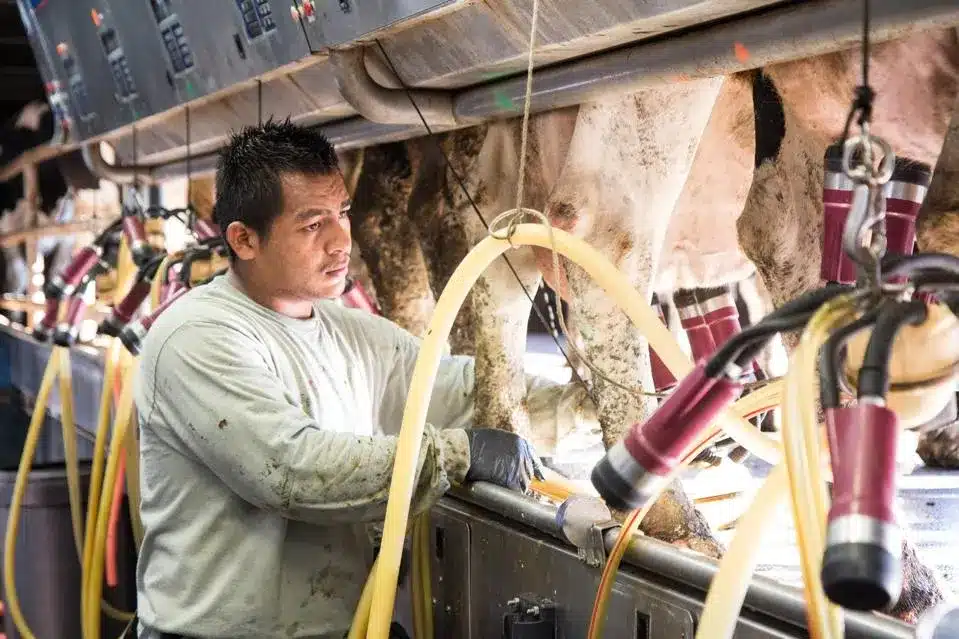
Farm labor faces a devastating blend of forces, according to Brian Reisinger, who grew up on a small Wisconsin dairy farm and later researched the history of farm economics for his book, Land Rich and Cash Poor: My Family’s Hope and the Untold History of the Disappearing American Farmer.
Reisinger says that many young people would love to stay and work on the farm, but the economic outlook is bleak, and they don’t see much of a future in it. “I see kids like … my eldest nephew, who would rather be doing nothing [other] than being on a tractor working with his grandpa. But the problem is that kids in 4H and FFA [Future Farmers of America], they don’t have any guidance counselors telling them to go into farming.”
The fact is there are not enough workers in the rural labor market, as the Baby Boom generation retires and fewer young people come behind to take their place.
“There’s not a lot of retired farmers that are willing to come and help on the farms anymore,” Hinchley says. “We have two older men that help us, but they’re in their 70s; they’re aging out.”
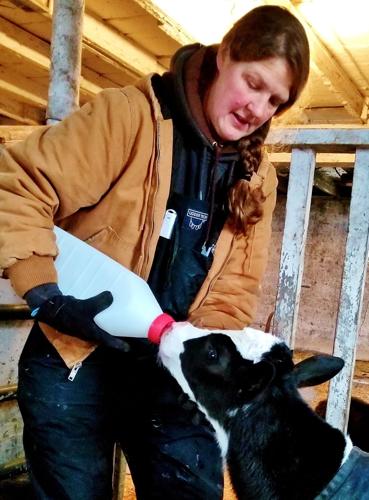
On her family’s farm in Dane County, Wisconsin, they only have one migrant worker to help out as they milk about 240 cows and give farm tours to educate people about the dairy industry. Many other farms rely on migrants to fill roles that used to be filled by high school and college students in the neighborhood, she says.
Idaho has seen some influx in population, but many of these are retirees from the West Coast, according to Naerebout. They’re definitely not seeking out jobs on dairy farms.
Robotic milking machines and other automation technology are appealing to an industry short on help. But, as of now, the technology has its limits, especially for larger operations, says David Anderson, a professor at Texas A&M who helped author the prominent 2015 study on the dairy labor force.
“That technology isn’t perfected yet,” Naerebout says in agreement. He knows of operations, tired of the ongoing maintenance costs and issues with reliability, that have actually fired their robots and replaced them with more reliable humans. “It’s a bit of a mixed bag, where you have some robotics, but you still have a significant reliance on human labor.”
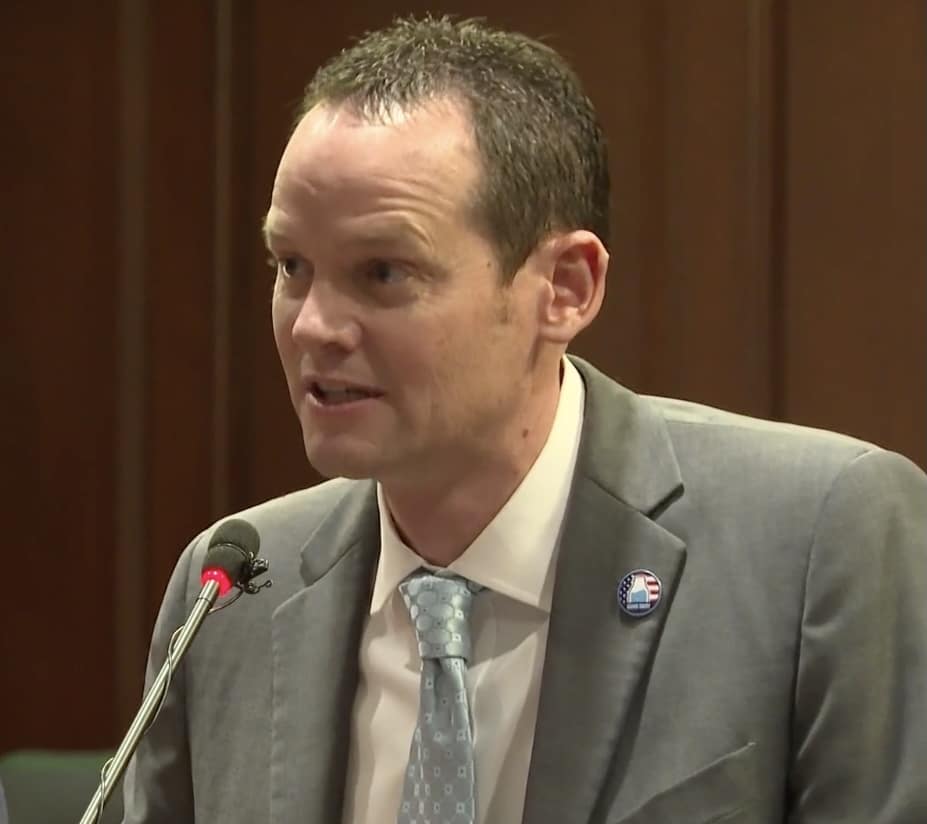
When it comes to hiring authorized migrant labor, the H-2A visa doesn’t serve dairy farmers well. It’s short-term, which is fine for farmers who need people to pick their crops for a few weeks. But dairy farms run full-time, year-round.
Dairies also value experienced workers who stick around and learn the business intimately, which is not the H-2A scenario.
“What we were able to document is that the higher your rate of labor turnover, the worse outcomes you had for overall herd health,” Anderson says. “Your milk production per cow was lower … there’s a value to having employees who have been there a long time.”
Workforce issues are only one headache keeping dairy farmers up at night, including the fact that most farmers are struggling to stay afloat financially.
Milk markets, as they are set up, are notoriously inflexible.
“No farmer controls what they sell their product for,” Naerebout says. “We’re price takers, and so it’s not like we can just say, OK, we’re going to increase our hourly wage by five bucks an hour, and then we’re going to increase what we sell our milk for to compensate ourselves for that increased labor cost. That’s not how our markets work.”
What to do about it
Even though the political pot is red hot and boiling over, the dairy industry has a strong incentive to seek immigration reform as farmers of various political stripes can find agreement on some policies.
The Idaho Dairy Association wants to see expanded legal pathways for existing immigrant workers and their families, and then some kind of multiple-year visa, Naerebout says. They also want to see the conversation go beyond the “Enforcement only” approach that seems to predominate now.
“What we need is stable workers, and what we would like to see is that they have the opportunity to stay for the entire year,” with the option to return after that, says Castaneda at the National Milk Producers Federation. Congress has shown no eagerness for reform for a long time, he says, so modest reforms like this might be the best way to start.
Pennsylvania farmer Rob Barley, whose family runs multiple operations, including a large dairy with more than 1,000 cows, is among those calling for common sense reform. He thinks that viewing the issue as a choice between two extremes—either those who want to keep everyone out or those who want to let everyone in—has caused problems. He wants a strong border, but also a system that allows people to come in who can be a productive part of society.
“There should be a way to do this that is reasonable,” he says.
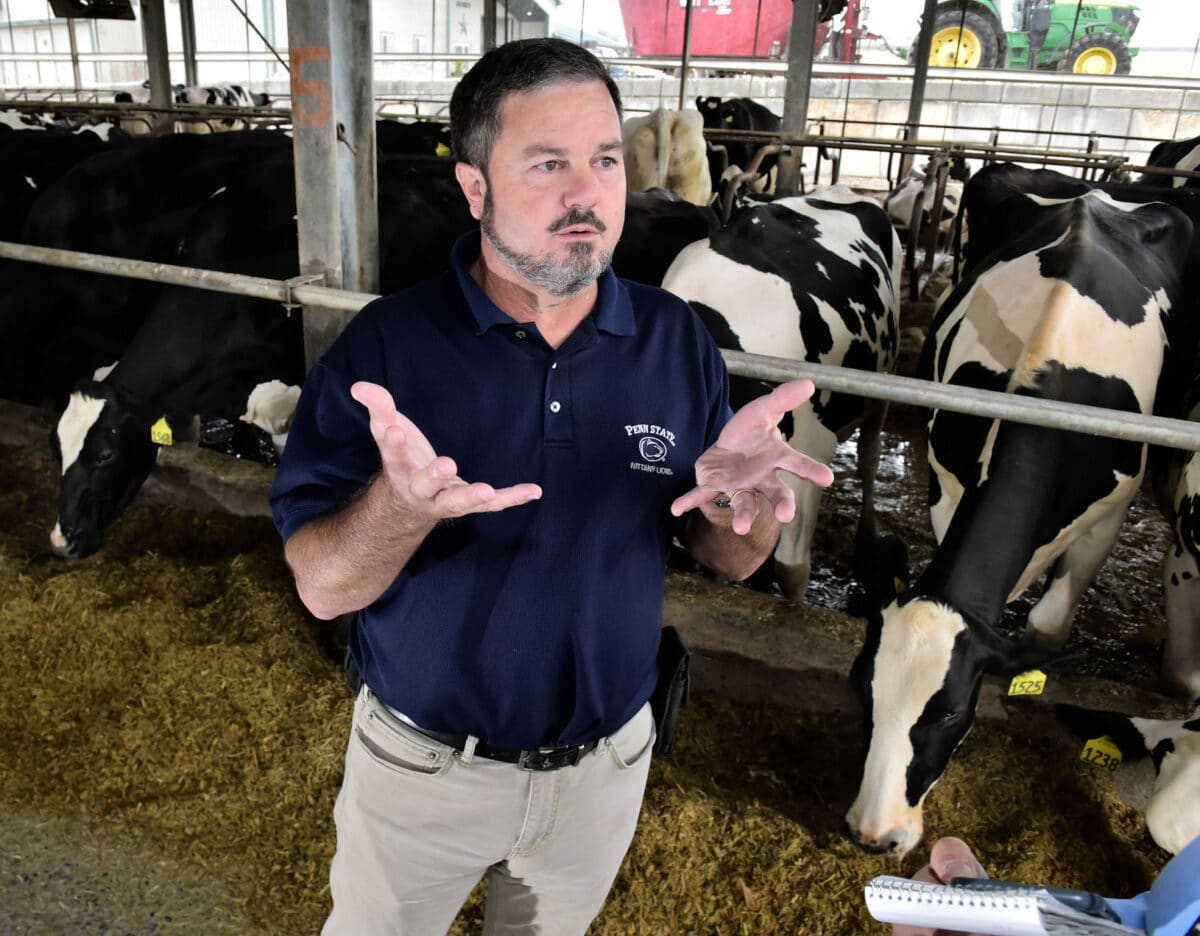
Farmers don’t always see eye to eye politically. Hinchley, who serves as vice president of the Wisconsin Farmers Union, agrees that a long-term visa is needed. She’s also a passionate immigrant advocate who denounces the Trump administration’s approach.
“We need to welcome these people. They’re the ones that are saving our industry,” she says, noting that Wisconsin couldn’t call itself “America’s Dairyland” without immigrant workers. They not only work in milking parlors, but cheese factories: “They’re everywhere,” she says. “They’re driven financially. There’s a motive that they want to better their life.”
She finds it difficult to understand dairy farmers who support Trump’s policies and sympathizes with the fear immigrants feel as they wait to see if their lives will be upended. “I don’t know what we’d do without them, and I think they need to be respected.”
Reisinger blames Congress for failing to do its job, saying it’s not farmers who have put us in this position. “The only reason we’re stuck … is because Congress hasn’t rolled up its sleeves and actually addressed the issue for decades.”
Intermittent efforts to do that haven’t gone far. A 2024 effort by a bipartisan group of senators tanked in spectacular fashion, getting no help from then-candidate Donald Trump, who savaged the bill.
The reality on the ground
A number of sources who spoke for this story chose their words carefully when speaking about immigration policy, rarely mentioning the current president by name. Quite a few others who were reached out to did not respond to requests for comment.
Now that Trump is back in power, and promising to deport both unauthorized and, in some cases, legal immigrants, farmers have been wondering what’s ahead for them. Meanwhile, what the administration frames as a focus on crime is laying the groundwork for larger scale deportation efforts. In April, the Supreme Court sided with Trump in allowing the administration to use the 1798 Alien Enemies Act to continue deporting individuals, as long as detainees are given due process. The law had been invoked only three times in U.S. history, during wartime, and is now at the center of a April 20 emergency injunction by the Supreme Court to temporarily block the deportation of 137 migrants the administration claims are part of the Venezuelan gang Tren de Aragua.
Despite the legal firestorm currently happening over immigration, farmers and industry insiders described a mostly quiet dairy farm scene on the enforcement front.
Barley, who also serves as the chairman of the Pennsylvania Milk Board, says he had not heard of enforcement actions taking place, although there is talk going around and a sense of heightened concern among employees.
“There’s definitely an uneasiness and anxiousness amongst the workforce on what might happen in the future,” Naerebout says.
He tells Barn Raiser in an email that Idaho agriculture has not seen any worksite raids under the new administration, although there has been some targeted enforcement directed at criminals. People picked up in those operations who don’t have a criminal record have then been released, he says.
“There’s been quiet conversations on the side between industry people and the administration, and [telling] them, ‘Look, you can’t. If you do this enforcement widespread and start picking up half the workforce, it’s going to put people out of business and really hurt the industry,’ ” Stup says.
Rumors have been flying on social media. Stup says one of these was sparked by a state vehicle spotted on a farm that had nothing to do with ICE. But, as he has talked with dairy farmers around New York and colleagues in other states, a picture has emerged of ICE making some farm visits. “In those farm visits, they have been quite consistent, though, that they are looking for individuals with some kind of a criminal background,” he says.
That doesn’t mean the situation will stay that way. “It could be a new memo tomorrow, and that could all change on a dime,” Stup says.
It’s commonly pointed out that ICE doesn’t have the staffing, as of now, to actually carry out mass deportations as described by Trump during his campaign. Still, targeted enforcement could cause a lot of pain. If the administration were to go after blue states like New York, and concentrate in a dairy-heavy county, that could result in disastrous consequences locally, Stup says, with cows not being fed or people trying to sell off herds. The more remote and rural the area, the worse this impact could be, with farmers not having many neighbors to turn to for emergency help to get them through.
Among the traits of the Trump administration so far, predictability isn’t one. But even if he follows the trend of the past 30 years and lets things go along largely as usual, farmers will continue to be caught in the middle on immigration for some time to come.
The post Trump Deportations Have Dairy Farmers on Edge appeared first on Barn Raiser.
